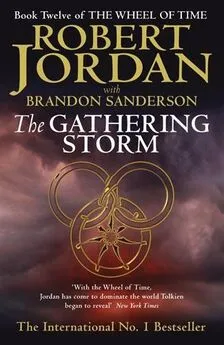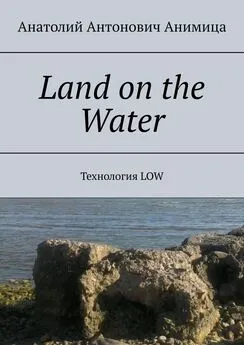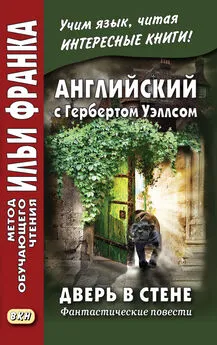Robert Low - The Whale Road
- Название:The Whale Road
- Автор:
- Жанр:
- Издательство:неизвестно
- Год:неизвестен
- ISBN:нет данных
- Рейтинг:
- Избранное:Добавить в избранное
-
Отзывы:
-
Ваша оценка:
Robert Low - The Whale Road краткое содержание
A band of brothers, committed only to each other, rides the waves, fighting for the highest bidder, treading the whale road in search of legendary relics.
Life is savage aboard a Viking raiding ship. When Orm Rurikson is plucked from the snows of Norway to brave the seas on the Fjord Elk, he becomes an unlikely member of the notorious crew. Although young, Orm must quickly become a warrior if he is to survive.
His fellow crew are the Oathsworn---named after the spoken bond that ties them in brotherhood. They fight hard, they drink hard, and they always defend their own.
But times are changing. Loyalty to the old Norse Gods is fading, and the followers of the mysterious "White Christ" are gaining power across Europe. Hired as relic hunters, the Oathsworn are sent in search of a sword believed to have killed the White Christ. Their quest will lead them onto the deep and treacherous waters of the whale road, toward the cursed treasure of Attila the Hun and to a challenge that presents the ultimate threat.
Robert Low has written a stunning epic, a remarkable debut novel. Not only a compelling narrative, The Whale Road also brings a new Viking landscape stretching from Scotland through the Baltic and on to Istanbul.
________________
"A company of warriors, desperate battles, an enthralling read."
---Bernard Cornwell
The Whale Road - читать онлайн бесплатно ознакомительный отрывок
Интервал:
Закладка:
`No,' answered Illugi. 'That part is true enough. When Atil was dead, never having been beaten in battle—because, it was said, of his fabulous sword—his men carried him into the steppe and howed him up in a burial mound made from all the silver taken from those he had conquered. They say it was so tall, snow formed on the top.'
There was silence while we both tried to wrap our heads round that monstrous idea of riches, but it was too much and made my head hurt. It all made my head hurt and I said so.
`True,' Illugi agreed, 'That Christ priest, Martin, seems to be able to swallow it all down, though, but you are right about him being untrustworthy. He thought to cross Lambisson with a false trail using the god stone. Perhaps he wants the treasure for himself.'
I shook my head. Treasure of that sort did not interest Martin, that much I knew. The Spear of Destiny, as he called it: that was what Martin wanted. With that he would become a high priest in his religion, and convert even more to the Christ cause.
Illugi frowned when I spilled this out, but he nodded. 'Aye, you have the right of it, I am thinking. He will be back after that shaft, so we must keep a close watch on it.'
Òn Hild,' I spat, bitterly, 'for she will not relinquish it without a struggle. It is some sort of talisman to her now.'
`Perhaps so,' Illugi mused, then frowned. Ìt is possible there is some Christ magic in it, a subtle, seidr sort of magic that will turn her to the Christ side. Still, a risk we must take if we are to keep her content, for she will not lead us to the hoard if she thinks we are being false with her.'
This sucked my breath away, said so matter-of-factly. Lead us to the hoard? She could no more lead us to a hoard of silver than I could kiss my own arse and I said so.
Illugi's eyebrows went up. 'Martin seemed certain of it,' he answered.
`Martin, we agreed, was a Loki-cunning, crook-tongued, sleekit-as-a-fox horse turd who could not be trusted to tell you a raven was black,' I roared back at him, hardly able to countenance that he believed this.
`He believed his Christ charm, the spear, was in the forge and he was right about that,' Illugi answered mildly. 'Have you noticed anything about that, young Orm?'
The wind having been sucked out from my sails, I floundered. 'Noticed what?'
`The spear-shaft that Hild will not relinquish. The wood is blackened; the rivets are rusted.'
Ìt is old—if Martin is to be believed,' I replied pointedly and he looked steadily at me.
Òlder than anything we have seen,' he answered. 'Yet, in the forge, on its ledge, under the runes . . .'
I felt a shock that prickled my body. He was right. I recalled it then, gleaming polished wood, the little nub end and rivets like new. I shook my head, as to drive the memory away. 'A sea journey. The salt . . .'
`Perhaps—but so quickly?' Illugi mused. Ànd what kept it gleaming new all those years on that ledge?'
Ì . . . don't know,' I confessed. 'What?'
He shook his head, stroked his beard. 'I don't know either. The runes maybe—that was a powerful spell.
Perhaps it ages because the blood of this Christ of theirs, who hung on the cross-tree and was stabbed with it, if you believe such a thing, has been removed with the metal shaft they used to forge the sword. Perhaps both.
`But it ages, Orm, it changes—and there is more. Like a . . . talisman . . . it helps Hild find her way to where the sword lies.'
I can see the enlightened curl their lip at this. Pagan stuff for skalds, for saga tales. The priests of the White Christ have banished this darkness from our minds, they claim proudly. Yet now we have the Devil and his minions. We no longer have Odin, who hung on the sacred tree with a spear wound. Instead, we have Christ, who hung on a cross with a spear wound.
On the beaches at Bjornshafen, I had conjured up trolls and dragons for me and my small warriors to fight with wooden swords. We knew they were all around us, unseen, waiting for the unwary, and just hoped they were far away from the affairs of men at that moment.
And runes were magical, everyone knew. I had heard of runed helmets that brought an enemy to their knees and mail that could not be pierced—though I had never come across any. But I was young and better men said it was so.
Yet, here was this, the world of Other, of gods and frost giants, black dwarves and trolls and magic runes, clutched to the bosom of a young girl under the spring sun of a strange, exotic town. Perhaps, after all, she had the way to a hoard of silver . . .
We had gasped our way north and east, sliding into the River Neva and then into the mouth of the Volkhov, heaving and panting at the oars, far too few to row this new Elk unless we had the flow of the tide and no wind in our face.
Cursing, with the breeze at our back and unable to hoist sail, since that would have sped us too fast to stop in a river of shallows and currents we did not know—we laboriously brought the new Elk to final rest in the harbour of Aldeigjuborg.
So weary were we, in fact, that we did not notice the glances at first. In a harbour crowded with hafskips and knarrer, the great, beautiful drakkar stood out like a gold ring in the gutter and the whole harbour had stopped to look at us.
I raised my head to swallow welcome Water and was captured by the sheer strangeness of it all. Birka had been a port of foreigners, I had thought, but this place, this Ladoga as the Slavs call it, was a different world entirely.
There were throngs of people here, all of them bright and dazzling in some way. Slovenes, Vods, Ests, Balts, Krivichi, big Svears with loud voices and sober clothes, even bigger Dregovichi and Poljanes from Kiev, wearing dazzling colours and fat trousers like Skapti, carrying long curved swords with no crosspieces on their carved wooden hilts.
There were shaved heads, ones with thick braids over one or both ears, or one at the back, or combinations of all of them. There were flat, clean-shaven faces, ones with moustaches which trailed off the end of the chin in wisps, full beards, braided beards, wild hair, carefully manicured locks, ones braided with beads and silver rings.
And there were goods: honey in pots, seal and deer hides, the furs of beaver and fox and great barrels of fine grinding stones, feather pillows and salt in sacks. There was even a sledge, big as a cart, waiting on the jetty to be taken somewhere.
And everyone stopped what they were doing to look at the magnificent jarl ship, crewed by a third of what it should be, by hard men with too much new finery and too many weapons to have come by it all honestly.
Einar stroked his stubble thoughtfully and announced: 'We sleep on board tonight.'
Which was only sensible, though everyone grumbled. They had survived death, rowed until the calluses split and wanted dry land, hot food, ale and women. But Einar had only to point out the sea-chests and what they would lose if the ship was raided in the dark and they unpacked the fancy awning tent and slung it up.
That night, Einar allowed half to go and get drunk, on pain they drank through their nose, as the saying goes—answered no questions and gave no drunken boasts. The next night, it was the turn of the other half and so it went on.
We never moved from that traders' fair awning of a tent; we grew to like sleeping aboard and going about our business in shifts. When we had paid our harbouring dues to the town official and his well-armed bodyguard and showed no aggression and, more to the point, started spending, the town relaxed.
Hild and I went ashore once, me following her like a faithful retainer, armed there were no restrictions here, though that was changing—with sword. As the days progressed, I wore finer and finer clothing.
I bought new boots, new breeks—blue, striped with silver wire and fat, like Skapti had worn—a fine dark-blue tunic, a green cloak with a rich, red-enamelled pin, a new wooden sheath lined in greased sheepskin for Bjarni's old sword.
I swaggered in Hild's wake, knowing that everyone who saw me knew I was off the Fjord Elk, aware of them nudging each other and saying, 'Go and look at her, she is the finest ship afloat and her crew are warriors all, even the young one there.'
And Hild bought clothing, too, to replace the tattered remnants of her own, so that, next day, we wandered the merchants' booths with her in a new dress and sparkling apron, hair unbound. I bought her a braided silver fillet for her brow, which she accepted and wore without protest, but without seeming enjoyment either.
But she looked just like a fine princess, with a fine prince by her side. We ate meat on wooden skewers and drank honey mead and I enjoyed that day. I remembered it afterwards, when all was darker. Even she seemed to enjoy it, though it was hard to tell—and she never took more than one hand off that spear-shaft, not once.
It ended, I remember, with the first of the recruits climbing the shoreplank to the deck of the Elk, where Einar waited. Gunnar Raudi and Ketil Crow and others had been out spreading the word everywhere that the fine ship and its hard crew were looking for good men not afraid to swear a varjazi oath to each other and live with the consequences of that.
When we got back to the ship, we had to push through a throng of them, all out for a piece of the luck that had gained Einar's crew riches and a fine ship. I wanted to shout out the truth to them, but thought better of it.
`Six skills I know,' I heard one say. 'I play 'tafl and scarcely make a mistake reading runes now. I can row and ski and shoot and use both spear and sword.'
And they were all variations of that. Those who passed Einar's scrutiny—I never knew what he saw, one way or the other—were tallied up by Illugi and told of the oath they would swear, in a ceremony to be arranged when we had all the men we needed.
When Einar was unsure, he would turn to Ketil Crow and raise an eyebrow and that man would wave a languid hand and ask something like: 'You are coming to a hall for the first time, walking up to it uninvited as a guest, but certain of hospitality nonetheless. What are you looking for?'
Those who answered that they were making sure where the doors were, in case they had to get out in a hurry, were hired. Those who stammered, or looked lost, or grinned and said 'the women' were sent away.
On the day of the stone-raising we had tallied up the last of them—the most Oathsworn that had been, according to Valknut. One hundred and twenty of us, almost the full complement of a drakkar, and Einar had thought carefully about what came next.
He had bought two fighting stallions, would match them as was the custom, then sacrifice the winner to Odin. On that altar of ground the Oathsworn—all of us—would swear the oath that bound us together once more. Even Einar.
It had been Illugi Godi's idea and, judging by the way luck had been running, Einar was probably right to think there was a chance it would work. He was still working his way to Atil's hidden hoard, sending Illugi to try to flush out any references to it, like ducks from a marsh, while giving nothing away himself.
I did not put my thought—that there was no stone raised to Eyvind anywhere—to either him or Illugi.
But the wyrd was working on Einar and, on that very day, it caught up with us all.
A few days after the stone-raising, the Oathsworn gathered on the Thingvallir, a patch of grass-tufted ground just outside the walled stockade of Aldeigjuborg.
It stretched along the river southwards and had a large flat altar-like stone embedded in it, near which the town had erected a wooden totem statue to Perun. Since, with his hammer and his big, brave bearded face, he was so like Thor as to be his brother, this satisfied Norse and Slav alike. Even though the Great Prince of Kiev, Sviatoslav, wasn't a Christ-follower like his mother, Olga—who was sainted for it later—he was tolerant enough. After all, he was half Khazar and they, I had been told, had chosen to follow the faith of the wandering Moses-men, which seemed beyond kenning; not only were they the very ones the Christ-men hated for having, they swore, killed their Christ, but the original Jewishmen were in Serkland, many miles away, and everyone else around was a Mussulman. Perhaps that was why Sviatoslav fought them, though some said it had more to do with them dominating the eastern trade routes.
Читать дальшеИнтервал:
Закладка:







